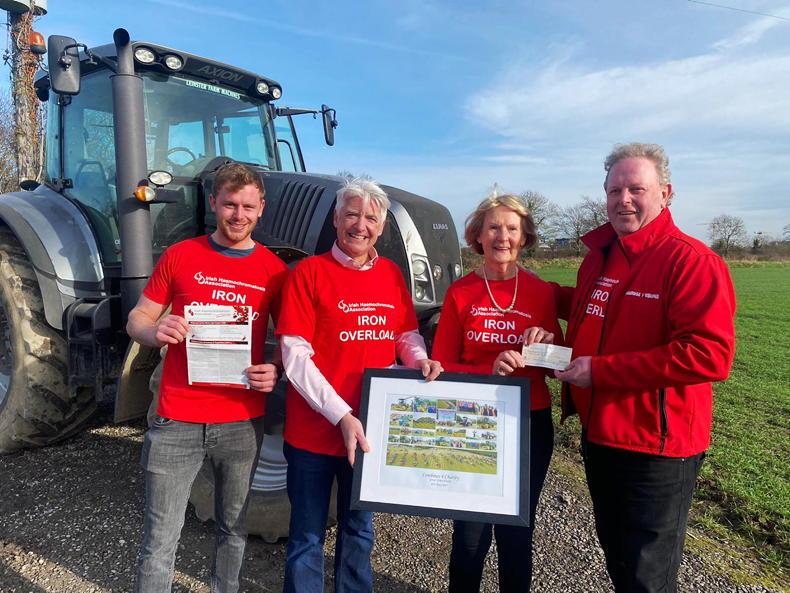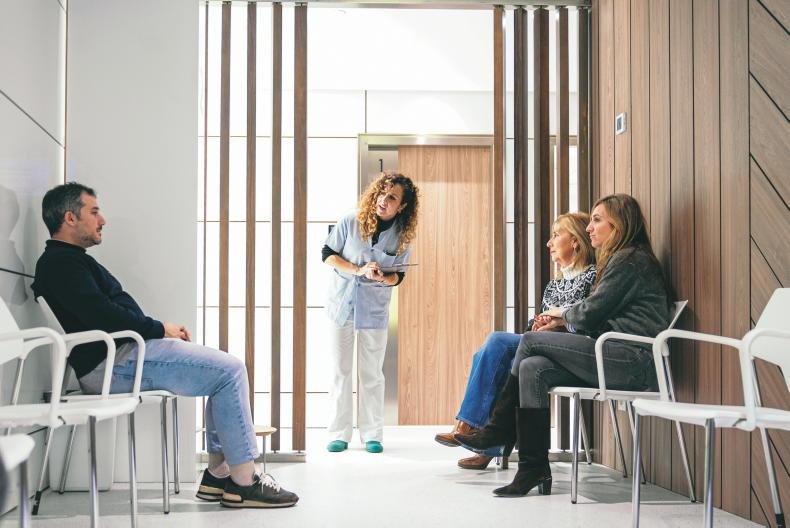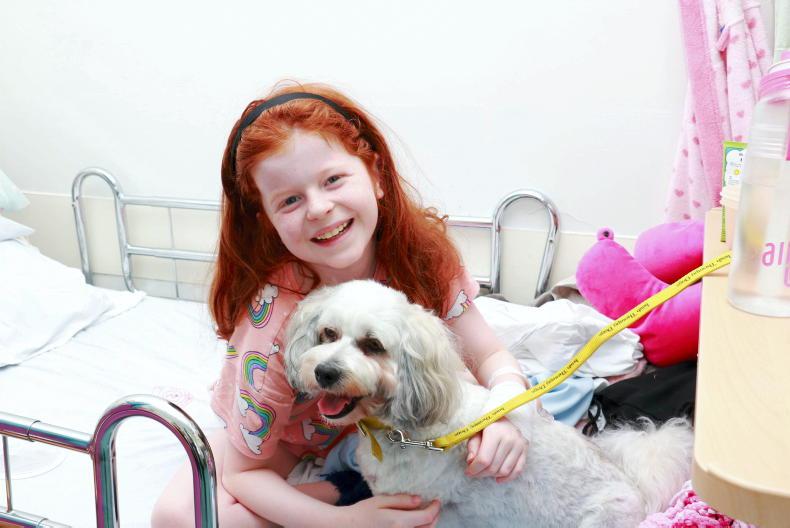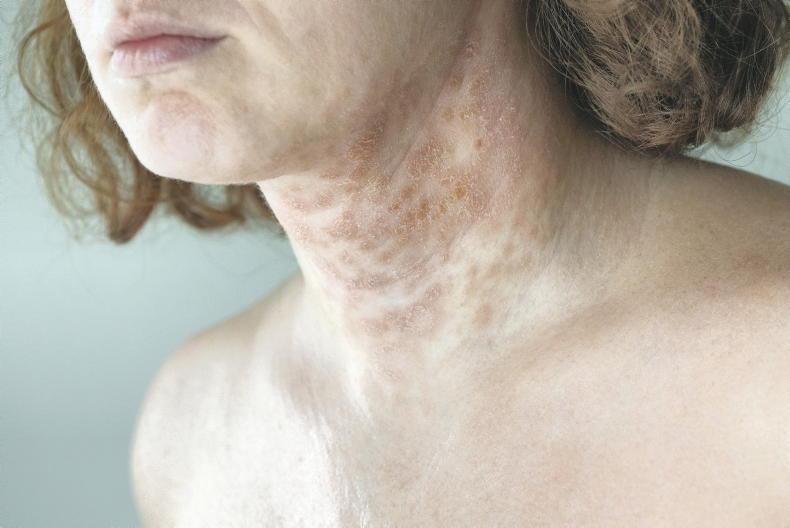Muscle weakness, hallucinations, anxiety and problems with breathing, balance and memory – these can be some of the physical and psychological effects that intensive care unit (ICU) patients have to recover from when they get home.
Recovery can vary from a few months to two years.
Up until 2013 there was no support group that former ICU patients could turn to.
That changed with the setting up of ICUsteps in Ireland.
Martha Hanlon, a clinical nurse manager in the Mater Hospital, was one of those involved in the setting up of this national voluntary support group.
“Originally an ICU patient, Barbara, realised that patients needed support when they got home. She approached staff to see if we’d be interested in helping set up a group,” Martha says.
“Being in ICU can have physical and psychological effects and it can take a while to recover. I was very interested as I’d seen the value of aftercare services when working in London.”
Martha became even more aware of it through knowing a farming neighbour who had been in ICU.
“He had been in ICU here in the Mater and had two ‘stops’ (had to be resuscitated twice) and I had gone to visit him at home. I remember how everyone was so delighted he was home and people saying, ‘It’s a miracle, he was so sick’. He was back farming, yes, but I remember asking him when we were on our own how he was really and he got tears in his eyes. He said he hadn’t been able to say anything (about trying to come to terms with all he’d been through) because people saw him doing so well.
“Some people do bottle up their feelings. I was able to talk him and his wife through some things and help them to normalise all he was experiencing, but I found it extremely sad at the time. I suppose that was a propelling factor really. Follow-up care was so obviously needed.”
Support meetings
ICUsteps Dublin (nationwide) has posters up in ICU units across the country publicising its support group. Information leaflets are also distributed explaining the impact that a spell in ICU can have on body and mind.
Affiliated with ICUsteps UK, the group meets in a Dublin hotel every three months with Zoom an option for those who can’t travel.
“Membership is for patients and care relatives or friends or patients,” Martha adds. “Sometimes at a meeting we’d have family of people who are in ICU at present who are looking for some help to bring them through.”
All the nurses that attend the meetings do so voluntarily.
“It’s not a therapy group, it’s really just a forum for people to talk to each other. The nurses can contribute information that will help them understand what they are experiencing, anything from muscle wastage and rebuilding to how slow recovery can be.”
Overwhelming experience
The “how do you eat an elephant” scenario is often mentioned in relation to recovery, she says.
“The answer is ‘one bite at a time’ because it’s just so overwhelming – that’s how people describe trying to recover. Depending on how long they’ve been in hospital they may not be able to walk properly and may have muscle wastage and breathing issues and on top of that they are still having hallucinations and vivid dreams (due to the essential medication they were on e.g. to induce coma).”
People return home and they are trying to process all that’s happened to them and “the gap” – the days of their life in ICU that they don’t remember – and the vivid dreams or hallucinations can linger for a while. They are also conscious of being dependent on others until they build up their strength again. These are huge things for people. When they hear that all this happens to other people too, it normalises that they feel this way.”
She points out that while everyone’s experience of ICU is unique, there are a lot of common symptoms and reiterates that after care support is needed.
“In the past you might go to outpatients or your GP but that follow-up is limited. This is a voluntary set up and thank God it’s been here. There is also a huge need for more formal critical care outreach services (resourced and funded) for these people and families who are so deserving of such services,” she says.

John Logan (76) is a retired marketing specialist from Dublin who spent four weeks in ICU because of a bacterial infection in 2014.
John Logan (76) is a retired marketing specialist from Dublin who spent four weeks in ICU because of a bacterial infection in 2014.
“How I came to be sick is still a bit of a mystery,” he says, “but I developed Ludwig’s syndrome. It’s very rare and stops your breathing so I was on a ventilator for two weeks and in an induced coma. I got pneumonia too and that almost finished me. Being in ICU was a gruelling experience and although I was reasonably fit and healthy it really knocked the stuffing out of me. Looking back, it took me quite a long time to get better. I considered myself an invalid at that time due to muscle wastage and loss of balance issues.”
It was a year later that John got involved with ICUsteps.
“One of the effects of the medication used to induce coma was to cause hallucinations and very vivid dreams. These were still bothering me heavily a year later and I still believed that I had been kidnapped by medical adventurers and made sick for the purpose of charging my health insurance more. While I was in ICU, I believed staff were my enemies because of these hallucinations so it was a very stressful time.”
John was relieved to hear that this was normal when he went to his first ICUsteps meeting a year later. The experience helped him to compose himself mentally, he says.
“They said, ‘Meet X – he believed he was kidnapped as well’. It hadn’t actually occurred to me that your mind is affected as well as your body. I realised that I was worrying about nothing. The dreams don’t really come back but you remember those events just as vividly as anything that happened in real life, like going to a particular international match, for example.
“It’s that real, but once you’ve heard that this was just the effect of a drug given to you for your own good to stop you suffering then it puts everything in perspective and you stop fretting.”
John now goes to ICUsteps meetings to tell his story and help people see that this is part of recovery.
“We do what we can to stop them going through months and months of unnecessary difficulty,” he says.
Since then, in 2017, John’s son spent six months in ICU after developing Guillain-Barré syndrome (a rare, autoimmune disorder) so John has seen ICU from the point of view of a parent as well.
“That has helped me to help some other parents through that. The trauma does recede when you see them getting better but it’s not easy.”
Impact of COVID-19
COVID-19 has made it even more difficult for ICU patients, he believes. “You come out of a coma and see people in hazard suits and masks and they don’t look human and you are, quite likely, suffering these dreadful hallucinations and memories of hallucinations and you see these strange people at the same time as family aren’t allowed in...
“It must be absolutely horrendous for anyone in ICU during pandemic times so we feel that our service – trying to get people better from their mental situation – is more needed than ever and we’re glad to be able reach out to Irish Farmers Journal readers to tell them.
“You really have to go through the experience to know what it’s like. You look at the TV and you see, ‘Oh numbers in ICU are just 65 now’ but the thought of even one person being unnecessarily in ICU is difficult to take.”
How is John now, eight years on? “I never got back to being as active as I was, but even so, I’m in good serviceable condition now for someone of my years,” he says.
John’s key message: “If you want to feel better, the best therapy you can give yourself is to go out and help someone else that isn’t well. You go to ICUsteps in the hope that your own situation will improve, but as you are there you are quite likely to meet somebody who is maybe more in need than you are and relating your experiences can help them, but we are not therapists – that is always emphasised.”
Combines-4-Charity donates €1,500 to the Irish Haemochromatosis Association

Combines-4-Charity initiated a fundraising drive for the Irish Haemochromatosis Association. Pictured at the handover of a cheque for €1,500 are Andrew Hemeryck, Brian Keegan, Margaret Mullett (founder) and Frank Hemeryck.
Having read Brian Keegan’s story of being diagnosed with haemochromatosis (iron overload) in Irish Country Living, Frank Hemeryck of Combines-4-Charity initiated a fundraising drive for the Irish Haemochromatosis Association.
Combines 4 Charity Ltd was formed in 2009 by a group of 10 cereal famers to establish a new Guinness World Record and raise money for charity. See combines4charity.com.
About haemochromatosis
In Ireland one in 83 people are predisposed to iron overload and one in five are carriers. The Irish Haemochromatosis Association estimates that there are another 20,000 who need to be diagnosed.
“It is essential that Irish people, wherever they live, know that there is a possibility that they may be suffering from iron overload,” Margaret Mullett, whose husband George died with the condition, says.
“If suffering from chronic fatigue, joint pain or any of the other symptoms, they should insist on both the ferritin and Transferrin blood tests.”
For more information on haemochromatosis, including symptoms to look out for see haemochromatosis-ir.com
Read more
Preparing for pregnancy and protecting against risk as a self-employed farmer
Acne: treat sooner rather than later
Muscle weakness, hallucinations, anxiety and problems with breathing, balance and memory – these can be some of the physical and psychological effects that intensive care unit (ICU) patients have to recover from when they get home.
Recovery can vary from a few months to two years.
Up until 2013 there was no support group that former ICU patients could turn to.
That changed with the setting up of ICUsteps in Ireland.
Martha Hanlon, a clinical nurse manager in the Mater Hospital, was one of those involved in the setting up of this national voluntary support group.
“Originally an ICU patient, Barbara, realised that patients needed support when they got home. She approached staff to see if we’d be interested in helping set up a group,” Martha says.
“Being in ICU can have physical and psychological effects and it can take a while to recover. I was very interested as I’d seen the value of aftercare services when working in London.”
Martha became even more aware of it through knowing a farming neighbour who had been in ICU.
“He had been in ICU here in the Mater and had two ‘stops’ (had to be resuscitated twice) and I had gone to visit him at home. I remember how everyone was so delighted he was home and people saying, ‘It’s a miracle, he was so sick’. He was back farming, yes, but I remember asking him when we were on our own how he was really and he got tears in his eyes. He said he hadn’t been able to say anything (about trying to come to terms with all he’d been through) because people saw him doing so well.
“Some people do bottle up their feelings. I was able to talk him and his wife through some things and help them to normalise all he was experiencing, but I found it extremely sad at the time. I suppose that was a propelling factor really. Follow-up care was so obviously needed.”
Support meetings
ICUsteps Dublin (nationwide) has posters up in ICU units across the country publicising its support group. Information leaflets are also distributed explaining the impact that a spell in ICU can have on body and mind.
Affiliated with ICUsteps UK, the group meets in a Dublin hotel every three months with Zoom an option for those who can’t travel.
“Membership is for patients and care relatives or friends or patients,” Martha adds. “Sometimes at a meeting we’d have family of people who are in ICU at present who are looking for some help to bring them through.”
All the nurses that attend the meetings do so voluntarily.
“It’s not a therapy group, it’s really just a forum for people to talk to each other. The nurses can contribute information that will help them understand what they are experiencing, anything from muscle wastage and rebuilding to how slow recovery can be.”
Overwhelming experience
The “how do you eat an elephant” scenario is often mentioned in relation to recovery, she says.
“The answer is ‘one bite at a time’ because it’s just so overwhelming – that’s how people describe trying to recover. Depending on how long they’ve been in hospital they may not be able to walk properly and may have muscle wastage and breathing issues and on top of that they are still having hallucinations and vivid dreams (due to the essential medication they were on e.g. to induce coma).”
People return home and they are trying to process all that’s happened to them and “the gap” – the days of their life in ICU that they don’t remember – and the vivid dreams or hallucinations can linger for a while. They are also conscious of being dependent on others until they build up their strength again. These are huge things for people. When they hear that all this happens to other people too, it normalises that they feel this way.”
She points out that while everyone’s experience of ICU is unique, there are a lot of common symptoms and reiterates that after care support is needed.
“In the past you might go to outpatients or your GP but that follow-up is limited. This is a voluntary set up and thank God it’s been here. There is also a huge need for more formal critical care outreach services (resourced and funded) for these people and families who are so deserving of such services,” she says.

John Logan (76) is a retired marketing specialist from Dublin who spent four weeks in ICU because of a bacterial infection in 2014.
John Logan (76) is a retired marketing specialist from Dublin who spent four weeks in ICU because of a bacterial infection in 2014.
“How I came to be sick is still a bit of a mystery,” he says, “but I developed Ludwig’s syndrome. It’s very rare and stops your breathing so I was on a ventilator for two weeks and in an induced coma. I got pneumonia too and that almost finished me. Being in ICU was a gruelling experience and although I was reasonably fit and healthy it really knocked the stuffing out of me. Looking back, it took me quite a long time to get better. I considered myself an invalid at that time due to muscle wastage and loss of balance issues.”
It was a year later that John got involved with ICUsteps.
“One of the effects of the medication used to induce coma was to cause hallucinations and very vivid dreams. These were still bothering me heavily a year later and I still believed that I had been kidnapped by medical adventurers and made sick for the purpose of charging my health insurance more. While I was in ICU, I believed staff were my enemies because of these hallucinations so it was a very stressful time.”
John was relieved to hear that this was normal when he went to his first ICUsteps meeting a year later. The experience helped him to compose himself mentally, he says.
“They said, ‘Meet X – he believed he was kidnapped as well’. It hadn’t actually occurred to me that your mind is affected as well as your body. I realised that I was worrying about nothing. The dreams don’t really come back but you remember those events just as vividly as anything that happened in real life, like going to a particular international match, for example.
“It’s that real, but once you’ve heard that this was just the effect of a drug given to you for your own good to stop you suffering then it puts everything in perspective and you stop fretting.”
John now goes to ICUsteps meetings to tell his story and help people see that this is part of recovery.
“We do what we can to stop them going through months and months of unnecessary difficulty,” he says.
Since then, in 2017, John’s son spent six months in ICU after developing Guillain-Barré syndrome (a rare, autoimmune disorder) so John has seen ICU from the point of view of a parent as well.
“That has helped me to help some other parents through that. The trauma does recede when you see them getting better but it’s not easy.”
Impact of COVID-19
COVID-19 has made it even more difficult for ICU patients, he believes. “You come out of a coma and see people in hazard suits and masks and they don’t look human and you are, quite likely, suffering these dreadful hallucinations and memories of hallucinations and you see these strange people at the same time as family aren’t allowed in...
“It must be absolutely horrendous for anyone in ICU during pandemic times so we feel that our service – trying to get people better from their mental situation – is more needed than ever and we’re glad to be able reach out to Irish Farmers Journal readers to tell them.
“You really have to go through the experience to know what it’s like. You look at the TV and you see, ‘Oh numbers in ICU are just 65 now’ but the thought of even one person being unnecessarily in ICU is difficult to take.”
How is John now, eight years on? “I never got back to being as active as I was, but even so, I’m in good serviceable condition now for someone of my years,” he says.
John’s key message: “If you want to feel better, the best therapy you can give yourself is to go out and help someone else that isn’t well. You go to ICUsteps in the hope that your own situation will improve, but as you are there you are quite likely to meet somebody who is maybe more in need than you are and relating your experiences can help them, but we are not therapists – that is always emphasised.”
Combines-4-Charity donates €1,500 to the Irish Haemochromatosis Association

Combines-4-Charity initiated a fundraising drive for the Irish Haemochromatosis Association. Pictured at the handover of a cheque for €1,500 are Andrew Hemeryck, Brian Keegan, Margaret Mullett (founder) and Frank Hemeryck.
Having read Brian Keegan’s story of being diagnosed with haemochromatosis (iron overload) in Irish Country Living, Frank Hemeryck of Combines-4-Charity initiated a fundraising drive for the Irish Haemochromatosis Association.
Combines 4 Charity Ltd was formed in 2009 by a group of 10 cereal famers to establish a new Guinness World Record and raise money for charity. See combines4charity.com.
About haemochromatosis
In Ireland one in 83 people are predisposed to iron overload and one in five are carriers. The Irish Haemochromatosis Association estimates that there are another 20,000 who need to be diagnosed.
“It is essential that Irish people, wherever they live, know that there is a possibility that they may be suffering from iron overload,” Margaret Mullett, whose husband George died with the condition, says.
“If suffering from chronic fatigue, joint pain or any of the other symptoms, they should insist on both the ferritin and Transferrin blood tests.”
For more information on haemochromatosis, including symptoms to look out for see haemochromatosis-ir.com
Read more
Preparing for pregnancy and protecting against risk as a self-employed farmer
Acne: treat sooner rather than later











SHARING OPTIONS